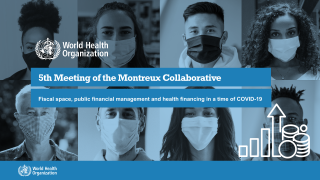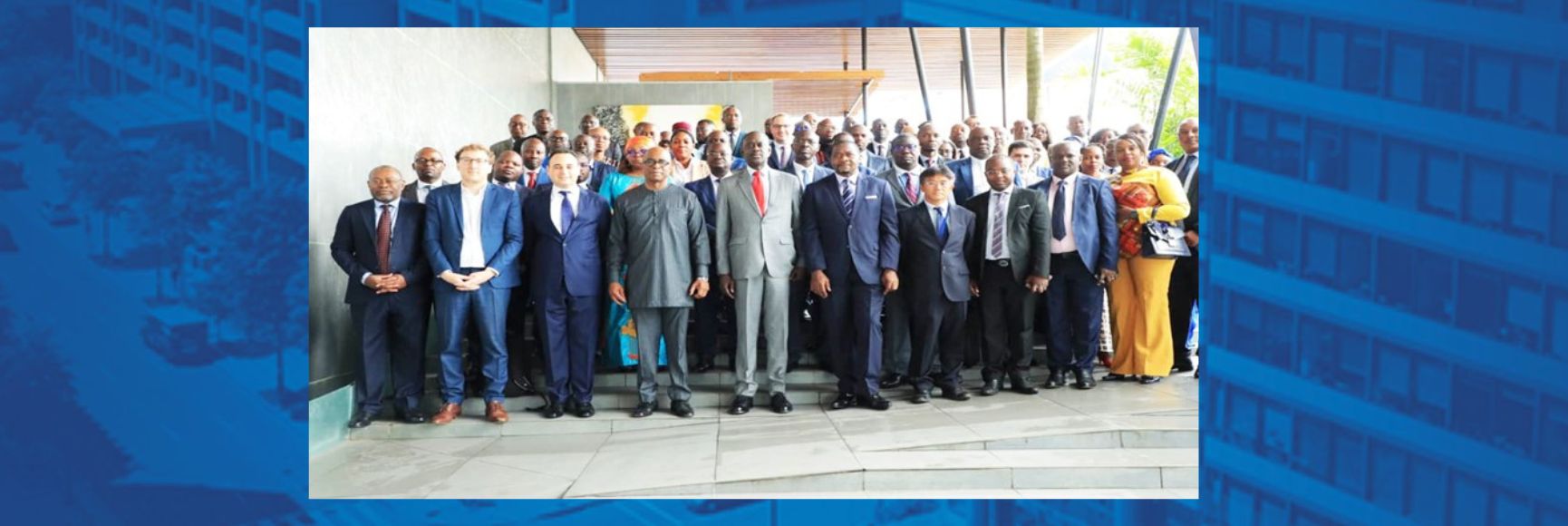Posted by Hélène Barroy and Joseph Kutzin[1]
COVID-19 has been a stress test for all Public Financing Management (PFM) systems. Most countries have temporarily relaxed PFM rules to provide greater financial flexibility while tailoring accountability mechanisms. Since the inception of the crisis, the World Health Organization (WHO) has been monitoring country PFM modalities to formulate, execute and account for COVID-19 health spending, including vaccine roll-out, in national budgets.
To enhance cross-country dialog and the learning of lessons for health spending in the context of COVID-19, WHO convened virtually its 5th Conference on Fiscal Space, PFM and Health Financing between 15-19 November 2021.
The week-long event gathered more than 900 participants from ministries of health and finance, health insurance funds, and related entities from 55 countries. It featured 50 senior experts from various organizations, including the World Bank, the IMF, OECD, UNICEF, the Global Fund, and GAVI.
The event marked a milestone in the implementation of the WHO Collaborative Agenda on fiscal space, public financial management, and health financing. It brought together health and finance perspectives aligned on the need to use COVID-19 as an opportunity for a longer-term transformation of PFM. The joint vision recommends PFM rules and policies to better meet health sector requirements in terms of flexible and accountable spending modalities up to the frontline service providers, while enhancing the overall financial management capacities and processes across the health sector.
The Conference offered a dynamic platform for cross-country learning on a range of PFM topics and paved the way for integrating some good practices that emerged during the COVID-19 crisis into regular budget processes.
- Participants discussed the macro-fiscal implications of COVID-19 for health financing. They highlighted risks for funding non-COVID-19 health services, especially in low and middle-income countries (LMICs) facing deeper and longer contractions. It detailed options to mitigate the widespread fall in general revenues – for example, through broadening the revenue base, increasing health taxes as with Ghana’s COVID health levy, or enhancing health’s share of the budget.
- Beyond these revenue issues, the participants looked at the expenditure side of the crisis. They reviewed key lessons from flexible budget formulation (e.g., flexible virements within program budgets as in South Africa) and execution (e.g., frontloading formerly retrospective payments, through an attached public agency, PhilHealth, to service providers as in the Philippines) that have allowed a stable, timely and accountable budgetary response to the pandemic.
- Building on extensive work from the WHO, the World Bank, and OECD, the event offered a deep dive into two critical phases of the budget cycle that matter for effective health spending. One session discussed the importance of having flexible, policy-aligned, and accountable budget formulation, and unpacked the design and implementation of program budgets to align with health sector needs. Another session was dedicated to budget execution issues, unveiling the depth of the problem in health in many LMICs. It proposed a framework for assessing the characteristics and causes of poor health budget execution.
- Participants explored innovative approaches to provide access to public funding for health facilities. It reviewed the experience of Tanzania with Direct Facility Financing and identified key PFM pre-conditions − in terms of the chart of accounts, facility financial management, financial information system adaptations − to make the approach work.
- Digital PFM was also under the radar, with contributors highlighting the advantages and risks of digital technologies for enhancing the efficiency of PFM processes in the health sector. Caution is warranted when digital technologies contribute to a pooling architecture with limited or reduced redistributive capacity in health (e.g., voluntary health insurance).
Meeting materials, including the agenda, presentations, session recordings, and the meeting report are available on the WHO event page.
[1] World Health Organization, Health Systems Governance and Financing.
Note: The posts on the IMF PFM Blog should not be reported as representing the views of the IMF. The views expressed are those of the authors and do not necessarily represent those of the IMF or IMF policy.






